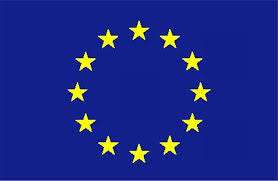EU Online Gambling Recommendations Focus on Consumer Protections
Last week, the European Commission released the full body of its recommendations regarding the marketing of online gambling services across the European Union. The recommendation, which was was delayed briefly before publication and is still subject to revision, offers several consumer-protection elements focusing on the most vulnerable elements of society, including problem and youthful gamblers.
 Advance reports stating that the EC’s recommendation would declare that commercials and print ads for online gambling sites and services should come with “WARNING” banners similar to those found on tobacco and alcoholic products were somewhat overstated. However, the EC’s publication of the recommendation and several supporting documents makes clear that it believes online gambling should be more active in deterring attempted underage gambling.
Advance reports stating that the EC’s recommendation would declare that commercials and print ads for online gambling sites and services should come with “WARNING” banners similar to those found on tobacco and alcoholic products were somewhat overstated. However, the EC’s publication of the recommendation and several supporting documents makes clear that it believes online gambling should be more active in deterring attempted underage gambling.
The one line from the recommendation addressing a possible warning message reads as follows: “Commercial communications should carry a clear ‘no underage gambling’ message indicating the minimum age below which gambling is not permissible.” However, that statement is made within the context of several common-sense recommendations designed to limit the exposure of gambling-related advertising to children, and to make sure that the activity is expressly declared as adults-only.
Here’s the larger excerpt from the EC recommendation regarding underage consumer protections, separated in a section entitled “Minors”:
(IV) MINORS
8. No minor should be able to play on a gambling website or hold a player account.
9. Member States should ensure that the operator has procedures in place designed to prevent minors from gambling, including age verification checks during the registration procedure referred to in Section V.
10. To prevent minors from having access to gambling websites, Member States should encourage the display of links to parental control programmes on gambling websites.
11. Member States should ensure that commercial communications for online gambling services do not harm minors or induce them to view gambling as a natural element of their leisure time activities.
12. Commercial communications should carry a clear ‘no underage gambling’ message indicating the minimum age below which gambling is not permissible.
13. Member States should encourage that commercial communications are not broadcast, displayed or facilitated:
(a) in media, or around programmes, where minors are expected to be the main audience;
(b) on websites with minors as the audience profile;
(c) in close proximity of places where minors normally spend time and are expected to be the main audience including at least schools.
14. Commercial communications should not:
(a) exploit the inexperience or lack of knowledge of minors;
(b) use images of minors or young persons or campaigns that particularly appeal to minors;
(c) appeal to minors, or to young persons by reflecting or associating gambling with youth culture activities;
(d) suggest that to gamble marks the transition from adolescence to adulthood.
Separately, in research accompanying the recommendation, an overview states that some children have been able to gamble online — often with the consent of their parents or by illicitly using their parents’ identification information, but that the percentages of underage gamblers are significantly lower than youthful participation in non-online forms of gambling.
The secondary research, dating back to a research study begun in 2012, shows that 5.9% of youths age 14-17 had gambled online, compared to 10.36% for the same age bracket in the “offline environment”. The numbers indicate that existing age and identity verification programs have been at least partly successful in stopping underage gambling.
A true “0%” figure, while the ideal, is realistically unobtainable due to the willingness of some parents to either allow their children to play on their own adult-ID’d accounts or to assist their children in establishing their own accounts. One famous example is that of Norwegian poker player Annette Obrestad, a/k/a “Annette14,” whose mother assisted her in playing on real-money sites while underage.
In addition to a “No Underage Gambling” sign or notice, which is not technically a “warning” but rather a declaration that the activity is adults-only, the EC recommendation also calls for a “responsible gaming” notice or message aimed at problem gamblers. As it relates to the actual online sites and services, the recommendation hopes that links to the following can be made available to consumers withing a single mouseclick:
(i) information that gambling can be harmful if not controlled;
(ii) information about the player support measures on the website;
(iii) self-assessment tests for the players to check their gambling behaviour;
The recommendation also asks for two separate forms of self-control that gamblers can initiate on their own — a “timeout” which would stop all gambling activity for a period not shorter than 24 hours, and a voluntary “self exclusion” that would last at least six months and that could only be lifted via written notice from the player who had done the self-excluding.
Most regulated online sites already offer variations of the above, just as they also undertake ID-verification measures, but the EU recommendation hopes that member countries will help to standardize the various consumer-protection practices across all EU jurisdictions.
The European Commission also clarified that it issued its findings and recommendations in the form of a recommendation — as opposed to possible EC legislation — because the EC currently lacks a framework for “sector specific legislation” for online gambling services, having defaulted in many cases to the frameworks imposed by individual EU member countries.
The EC had previously explored implementing EU-wide online gambling controls but has been largely rebuffed by most EU member countries, who generally regard gambling regulatory matters as national jurisdictional matters despite online gambling theoretically being included in the large list of services subject to EU oversight.



















COMMENTS